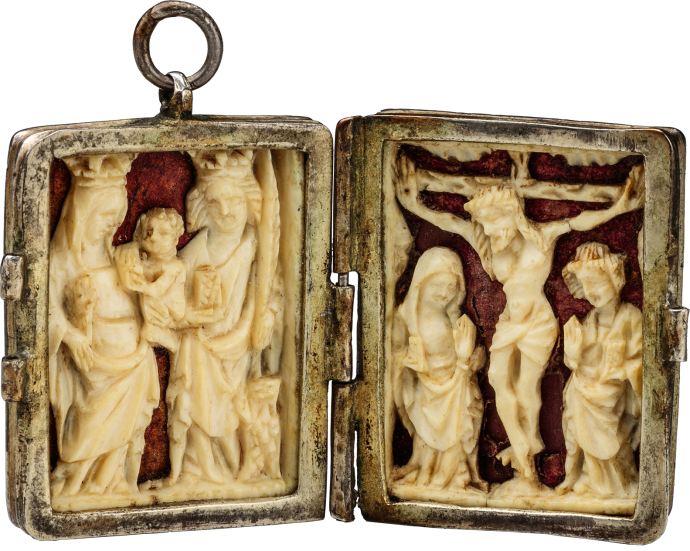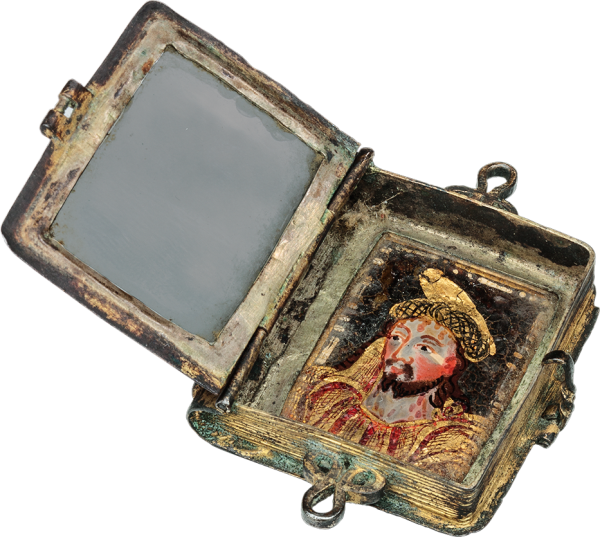


Diptych Pendant with Virgin and Child and Crucifixion Scene
, late 14th century
Diptych Pendant with Virgin and Child and Crucifixion Scene
Description
It is reminiscent of a diptych, but given that both diptychs and books descend from the form of scribal tablets that ancient writers used to make notes, perhaps the difference is not so important — both carry important information inside their covers. Pendant diptychs and triptychs were often worn on the body in the same manner as many of the objects in this collection; small examples were also frequently carried in a pouch rather than directly suspended from a belt. One presumes that such objects were habitually used for prayer exercises. A much larger ivory diptych from the Courtauld Gallery with similar images of the Virgin and Crucifixion would have also been used for prayer, perhaps placed on a table or an altar while a devotee knelt before it. In contemplating the panel on the right, the worshiper would have performed a series of devotions concerning the Passion. The left panel would have appealed to a prayerful viewer even more directly—it shows the Virgin and Child interacting intimately with saints: the Christ Child crowns a man perhaps to be indentified as St. Louis, and the Virgin gently lays her hand on the head of a nun.
This little book is so small that it would not be easy to use as a devotional object, yet it has a fully developed set of devotional images inside. Perhaps we must imagine that the devotee would have peered in, praying all the more intensely given the concentration that the tiny object required.
Provenance
Collection of James Frederick Hutton (1826-1890), Manchester, United Kingdom; then Böhler-Blumka Gallery, New York, in 2012.
